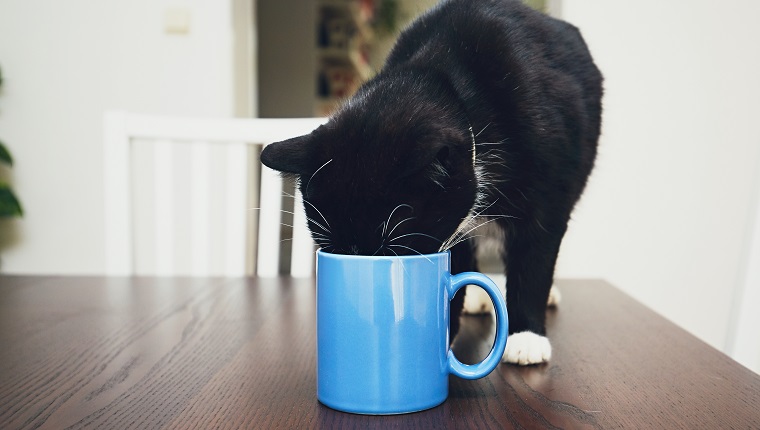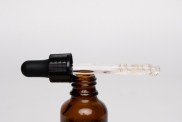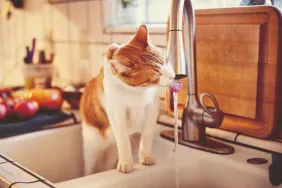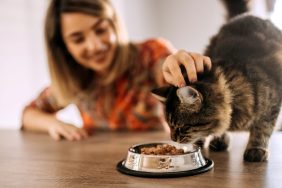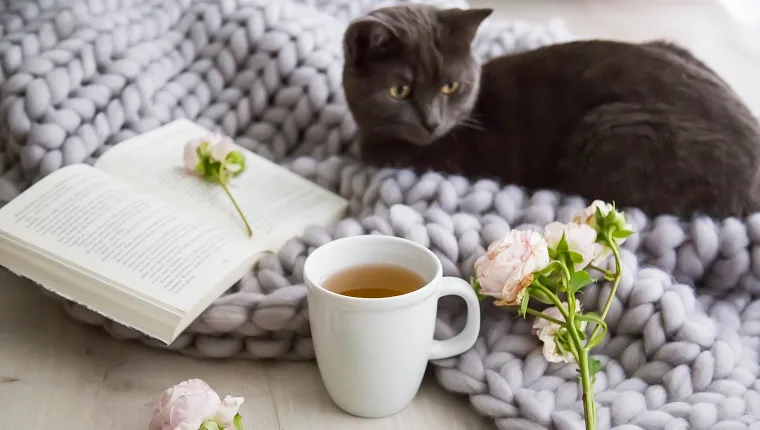
How bad is tea for cats? Maybe you’ve wondered this if your cat tried to sneak a sip while you were brewing yourself a pot of tea. If humans can drink tea, can cats handle a sip or two?
The short answer is cats cannot safely drink tea. Many teas contain caffeine, which can lead to serious health problems. While some teas that don’t contain caffeine might seem like they could be beneficial for your cat, there’s also a chance that the tea contains other ingredients that could upset your cat or prove to be toxic.
Here’s what you need to know about tea and cats.
Why Is Tea Bad For Cats?
The problem with tea for cats is usually the presence of caffeine, which is a stimulant. If a cat drinks tea, it can lead to an increased heart rate, hyperactivity, restlessness, and a tendency to vocalize constantly.
Some of the other symptoms that can result from a cat drinking tea that has caffeine include:
- Diarrhea
- Vomiting
- Suffering from a fever
- Having to urinate more frequently
- Higher blood pressure and cardiac arrhythmias
In very severe cases, cats could end up in a coma or even pass away.
Beyond the problem with caffeine in many teas, there is also the probability that herbal or fruit teas contain other ingredients that might also prove to be toxic for a cat.
Examples of these ingredients include citrus, essential oils, and artificial flavors or sweeteners.
What Should I Do If My Cat Drinks Tea?
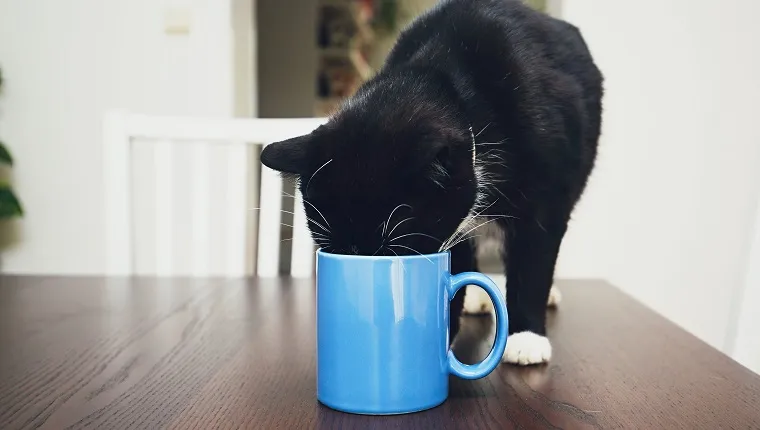
If you discover that your cat sneaked in some tea, it’s vital to try and work out how much they have consumed. A few tiny sips might not be anything to be overly concerned about, but make sure to monitor your cat closely for the common symptoms listed above.
Call an emergency veterinarian if your cat displays any concerning symptoms, or if you suspect that your cat has managed to consume a more significant amount of tea.
Depending on the severity of the case, your vet might suggest a range of remedies. These can include an intravenous drip, prescribing activated charcoal to absorb any toxins, and inducing vomiting.
Has your cat ever sipped your tea? Did they show any concerning symptoms? Let us know in the comments below!
